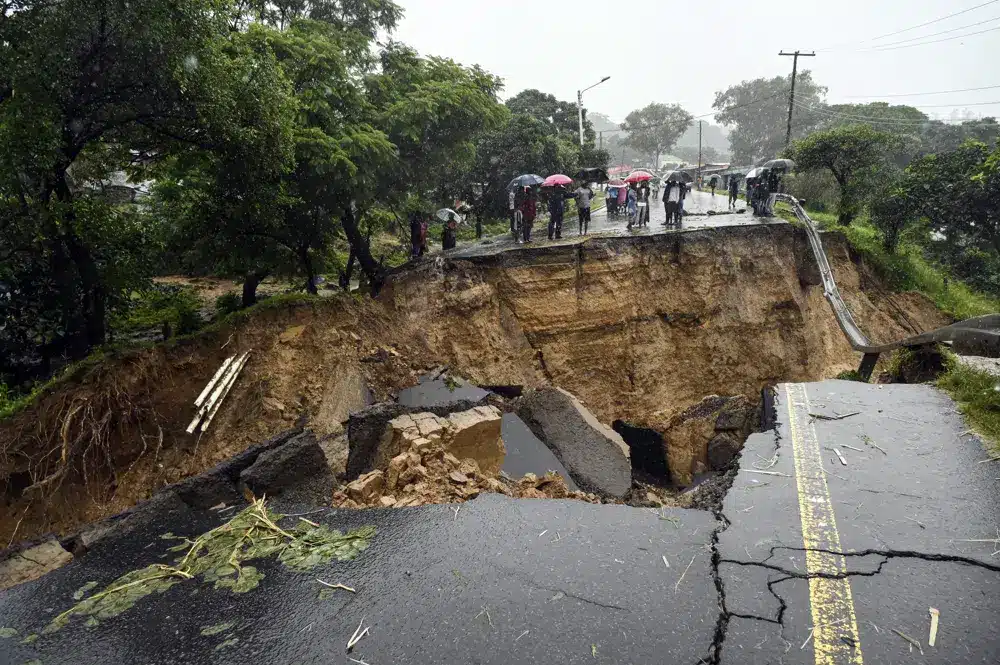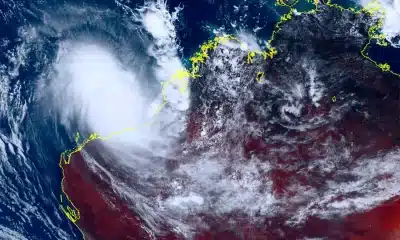News
216 Dead As Cyclone Freddy wrecks Malawi, Mozambique

Malawi’s BLANTYRE — At least 216 people have died in Malawi and Mozambique since Saturday night due to Tropical Cyclone Freddy, which has devastated southern Africa in a rare second landfall.
199 people have died in Malawi as a result of flooding and mudslides caused by heavy rains, according to authorities on Tuesday. The southern part of the nation, including the now-devastated commercial center of Blantyre, was declared to be in a “state of calamity” by President Lazarus Chakwera. According to Malawi’s disaster management directorate, over 19,000 people have been forced to leave their homes in the country’s south.
“Power and communications remain down in many impacted areas, impeding humanitarian operations,” said Stephane Dujarric, the U.N. Secretary General’s spokesperson, at a news briefing Tuesday afternoon. The worst-hit areas are still inaccessible. Therefore, it is still being determined how much damage has been done.
According to reports from Mozambique’s disaster institute, 1,900 homes in the province of Zambezia on the country’s coast have been devastated, and 17 people have died nationwide. Thousands of people are still camped out in shelters and lodging facilities.
According to forecasts from the U.N. meteorological center on the island of Réunion, Freddy will continue to pelt central Mozambique and southern Malawi with heavy rain until returning to the sea late Wednesday afternoon.
Death toll from Cyclone Freddy rises in southern Africa.
Amnesty International, a human rights organization, has urged the international community to mobilize resources and step up humanitarian and rescue efforts in the two nations. When Freddy struck, relief operations in the countries were already under stress from a cholera outbreak.
“The official death toll will grow in both Malawi and Mozambique, as well reports of devastated infrastructure,” said Tigere Chagutah, Amnesty International’s east and southern Africa director. “The afflicted countries must also be made whole for the loss and harm the cyclone caused.”
Nations agreed in November last year to compensate nations hit by extreme weather made worse by human-caused climate change. According to scientists, cyclones get wetter, more frequent, and more violent as the earth warms.
Death toll from Cyclone Freddy rises in southern Africa.
Since late February, Cyclone Freddy has been wreaking havoc across southern Africa. Also, it devastated Madagascar and Réunion as it traveled across the Atlantic last month.
The storm has intensified seven times in a row, and its accumulated cyclone energy, or ACE—a measurement of how much energy a cyclone has released over time—is the highest ever seen. During their career, Freddy produced more energy than a regular hurricane season in the U.S.
Early in February, Freddy began to form close to Australia, which is expected to be the longest tropical cyclone ever observed. An expert team has been assembled by the U.N. meteorology service to examine whether it has surpassed the previous record of 31 days established by Hurricane John in 1994.
SOURCE – (AP)
































